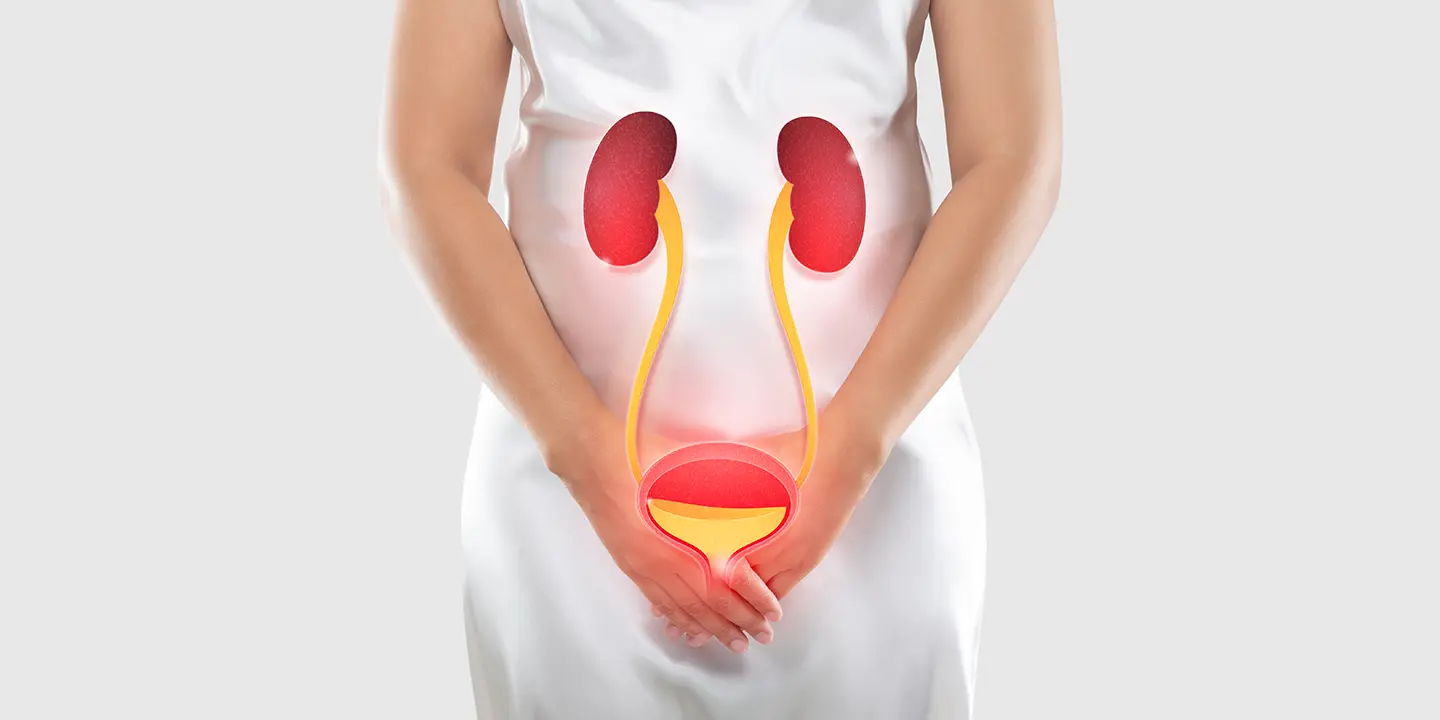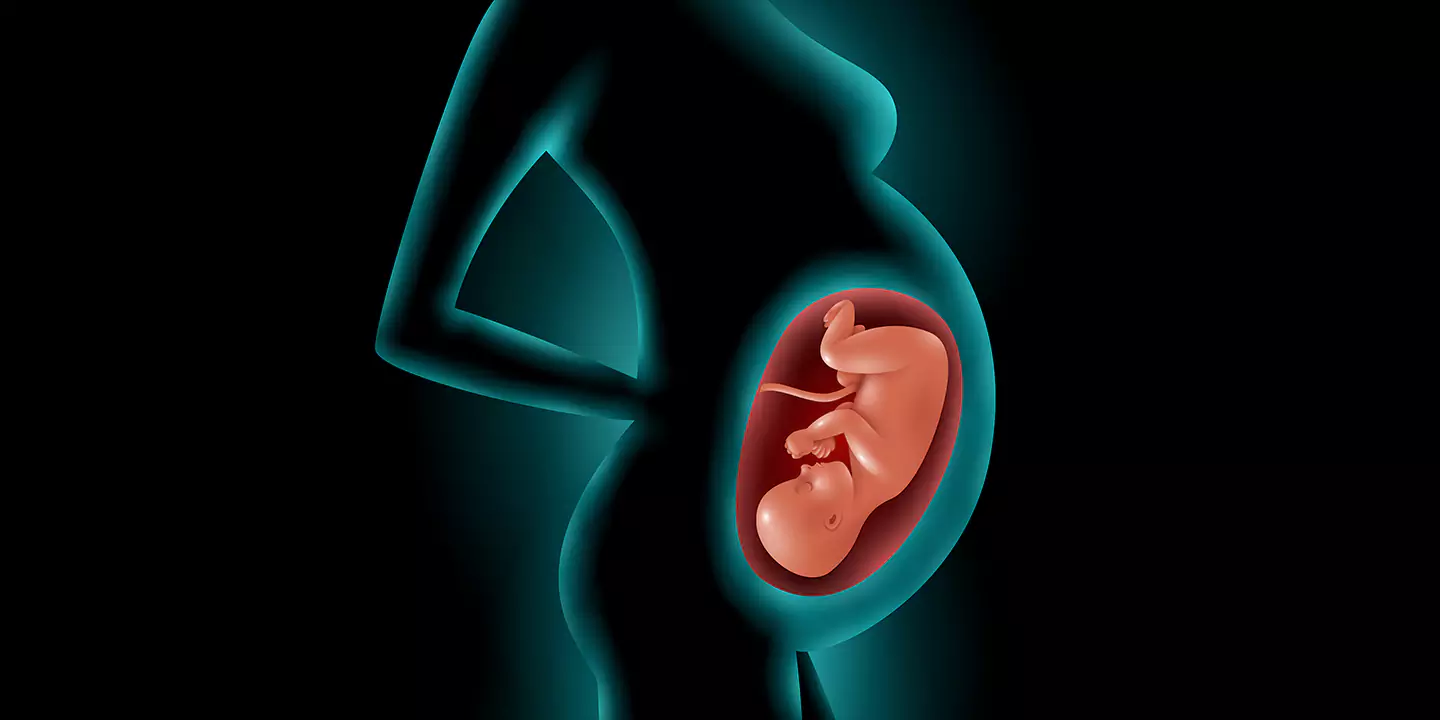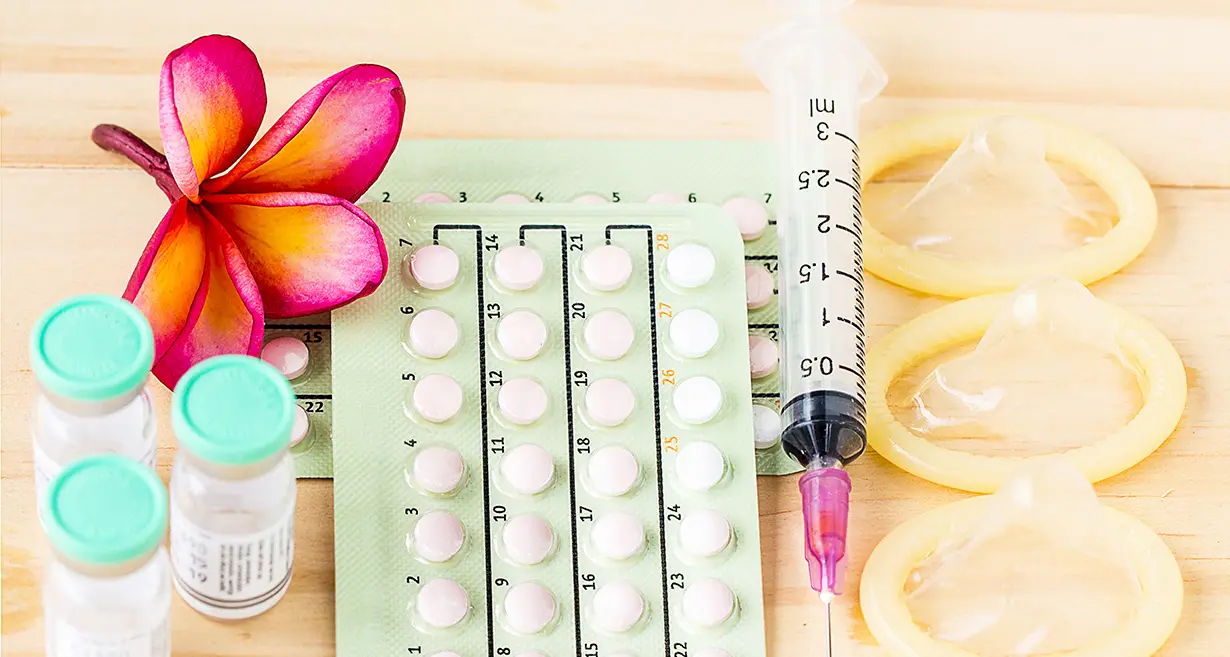
An ovarian cyst is a fluid-filled sac that varies in size in a person’s ovary, a part of the female reproductive organ. These cysts are common and often occur during ovulation. However, most are noncancerous many times, and these cysts go away on their own, but if in case you experience ovarian cyst symptoms, then it is better to get your checkup done by an expert gynecologist. Book your appointment with QUEEN’S GYNECOLOGY to get the right ovarian cyst treatment at the right time. The treatment, however, depends upon many factors, including age, size, appearance, and signs of ovarian cysts that you experience.
In this Article
Ovarian cysts – an overview
Ovarian cysts are more common in women with regular periods, as women make at least one follicle every month. A person has cysts, which is expected unless a problem causes the cyst to grow or if multiple cysts are formed. After menopause, women experience fewer ovarian cyst symptoms as they are less common after this phase. Postmenopausal women are more prone to ovarian cancer. Thus, it is best to see your doctor irrespective of age. See the best gynecologist if you experience symptoms like ovarian cyst pain. QUEEN’S GYNECOLOGY is among the best clinics with expert gynecologists and experienced surgeons. Also, ovarian cysts are common during pregnancy. However, these cysts are benign and harmless. But if left untreated, it will continue growing and can rupture, twist, or cause problems during childbirth. An expert gynecologist will monitor any ovarian cyst found during pregnancy to minimize any risk during delivery.
Related Blog: Important Things Female and Teen Should Know About Ovarian Cysts
Ovarian cysts – causes
There are different types of ovarian cysts, and their causes depend on their types. These cysts can occur for many reasons and may need other treatments. The cyst also varies in size from an inch to four inches, sometimes even larger. Different cysts have different causes, and ovarian cyst pain location also changes. However, functional cysts is considered as the most common type of ovarian cyst. These cysts only happen in women who have started their menstrual cycles but have not gone through menopause. Their causes of ovarian cysts are:
- Hormonal factors and medications that help people ovulate develop follicle and corpus luteum cysts, als which are the common types of functional cysts.
- Endometriosis makes a person more prone to developing endometriosis.
- Throughout pregnancy, the corpus luteum type cyst releases progesterone to maintain the pregnancy. The placenta takes this duty, and the corpus luteum cyst regresses. If it remains intact or gets larger, an expert may have to remove it.
- There are cases in which Infections affect the ovaries and fallopian tubes that develop cysts.
Symptoms of ovarian cysts
Regardless of your type of ovarian cyst, it may rupture or burst. The larger in your cyst in size, the more likely it is to get rupture. Most of the time, ruptured ovarian cysts are not medical emergencies mostly, but in some cases, medical complications can develop post-ovarian cyst ruptures, making it a good idea to seek medical guidance. When a cyst ruptures, you may experience ovarian cyst and burst symptoms, including sharp pain in the lower belly. Spotting or vaginal bleeding, feeling bloating, fullness in the pelvis, etc. If you see these severe symptoms, it is best to seek help from an expert gynecologist immediately. Other common symptoms of ovarian cysts symptoms are :
- Pain in the lower back or thighs
- Trouble emptying your bladder completely
- Pain during sex
- Weight gain
- Pain during your period
- Breast tenderness
- Abnormal vaginal bleeding, which is rare
Related Blog: 7 Symptoms Of Ovarian Cyst You Should Not Ignore
Who is more prone to develop ovarian cysts?
You are more prone to ovarian cysts and can experience signs of ovarian cyst if :
- You have a hormonal problem, like taking a fertility drug.
- If you develop endometriosis, some tissues are attached to ovaries and form a cyst.
- If you have a severe pelvic infection that spreads to the ovaries, that can cause a cyst.
- If you have one ovarian cyst, which makes you more prone to developing more.
Ovarian cysts – Diagnose
Most ovarian cysts show no signs or symptoms and often remain undiagnosed. In some cases, people experience ovarian cyst pain. At that time, it is best to seek help from the best gynecologist to determine the exact condition and ovarian cyst pain location. Your doctor will ask about your history in terms of your health and also about ovarian cyst symptoms. The gynecologist will then have a physical exam, including a pelvic examination, during which the doctor will feel swelling on an ovary. In women with no signs of ovarian cyst, this is the foremost sign of a cyst. If your gynecologist thinks you have an ovarian cyst, you may also need more tests, which will help them learn about the type of cyst. The test will also help to know the exact problem, like ectopic pregnancy or any other as well. The recommended test may include the following:
- Ultrasound
- MRI
- Pregnancy test
- Biopsy
- Blood tests
Treatment for ovarian cyst
Treatment for ovarian cysts depends upon many factors, including :
- Whether a person has undergone menopause or not.
- Ovarian cyst pain location
- Ovarian cyst symptoms
- Age of the person
If an ovarian cyst is small, is less than 10 cm, and is not causing any signs, the gynecologist will recommend a faithful watch, which will be monitored using ultrasound. In some cases, females also have to undergo surgery to remove an ovarian cyst, and the doctor will outcome surgery if the patient has unclear ovarian cyst pain, the cyst is large, the cyst looks unusual in the scan, etc. QUEEN’S GYNECOLOGY is the right place to get your ovarian cyst treated. It is the right choice to have safe and effective treatment as the gynecologist here offers many treatment options, including :
- Conservative management- mainly for functional cysts.
- Medical management.
- Ultrasound aspiration of the cyst
- Laparoscopic Ovarian cyst removal surgery
- Laser cyst removal treatment
Relate Blog: Medical treatment of ovarian cyst with surgery
How QUEEN’S GYNECOLOGY can help you to treat ovarian cysts?
QUEEN’S GYNECOLOGY is one of the best clinics that provide ovarian cyst specialists who offer excellent ovarian cyst treatment in Delhi. The specialist diagnoses the cyst by discussing all ovarian cyst symptoms and with the help of MRI, transvaginal ultrasound, and tumor markers. It is among the best clinics for ovarian cyst treatment that also offers appropriate laser cyst treatment or cyst removal surgery upon consultation with the surgeon. The cost of ovarian cyst heer depends upon many factors like lab test fees, type of hospital, consultation fees, etc.
Conclusion
An ovarian cyst is common and often causes no symptoms and can be managed without treatment, but some cysts become large, rupture, and cause twisting in the ovaries. People experience ovarian cyst pain; some also experience ovarian cyst burst symptoms that need proper treatment. People who experience severe symptoms like abdominal pain and bleeding must seek urgent medical help from an expert gynecologist. Schedule our appointment with QUEEN’S GYNECOLOGY to get treated well.
FAQ’s
Most ovarian cysts are benign and are not caused by cancer; thus, they do not increase cancer risk in a few rare cancer cases ovarian cysts can cause.
The best treatment for ovarian cysts will depend on many factors comprising the patient’s health, symptoms, and many other details of the cyst. It’s vital to remember that most cysts are not harmful and require follow-up scans to confirm that a cyst is going away on its own or not growing. If you are worried after getting diagnosed with any type of cyst or experiencing unusual signs of ovarian cysts that are worrisome, book your consultation with an experienced specialist at QUEEN’S GYNECOLOGY.






























































































































































































